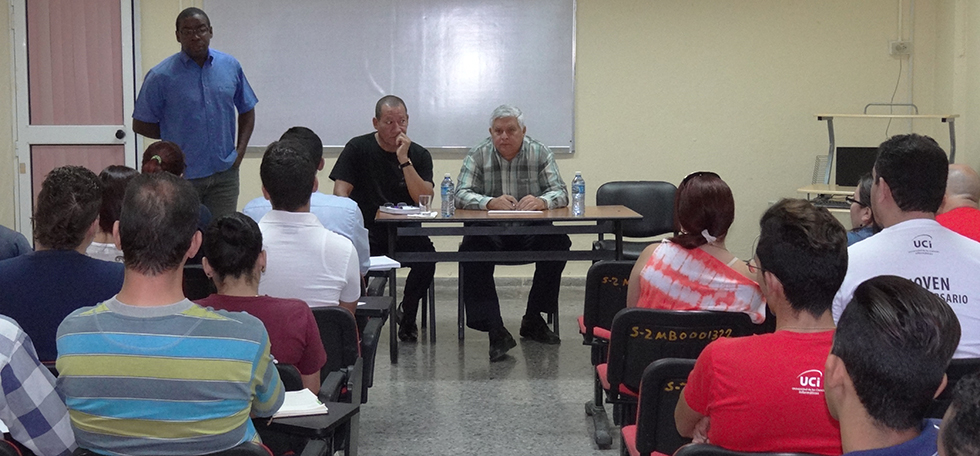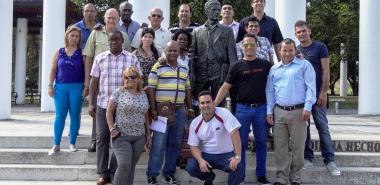At the conference, the debate on the Cuban elections played a leading role. Photo: Víctor Manuel Armas Pis
Conference on the Cuban Electoral System.
On Wednesday morning, January 25th, 2017, Deputy Ph.D. Jose Luis Toledo Santander, president of the Committee on Constitutional and Legal Affairs of the National Assembly of People's Power, offered a conference to leaders and specialists of the University of Informatics Sciences (UCI) university about the Cuban Electoral System.
This was the beginning of a series of activities to expand knowledge on the subject and strengthen the preparation for the next electoral process in the country.
Speaking about the constitutional organization of the State and its Electoral System, Toledo Santander said that the community needs to gain clarity regarding Cuba's positions, and assured that Socialism and the country's political system is not perfect and that it is about, a process of continuous improvement.
In addition, it is a sui generis system, where the people can elect their representatives without the intervention of political parties. The main axis is unity, which for the country is strategic and essential to maintain independence and sovereignty. Another reason is that we conceive a direct democratic system because the people can nominate the person who represents them. The third element that distinguishes us is that our Party is not electoral.
In Cuba every two and a half years there are partial elections and the general elections are five-yearly, when municipal leaders (the Municipal Assembly is the central nucleus of Cuban revolutionary democracy), provincial and national, where deputies analyze the macro problems of society.
The Committee on Constitutional and Legal Matters has the functions of exercising the highest supervision of State and Government bodies, carrying out primary control of the constitutionality of the rules that are submitted to the National Assembly, drafting bills and agreements, To decide on the matters that are submitted to its examination, to carry out the studies that are entrusted to him, to participate in the verification of the fulfillment of the decisions adopted by the National Assembly and the Council of State, organs to which it assists in the matter of its competence .




